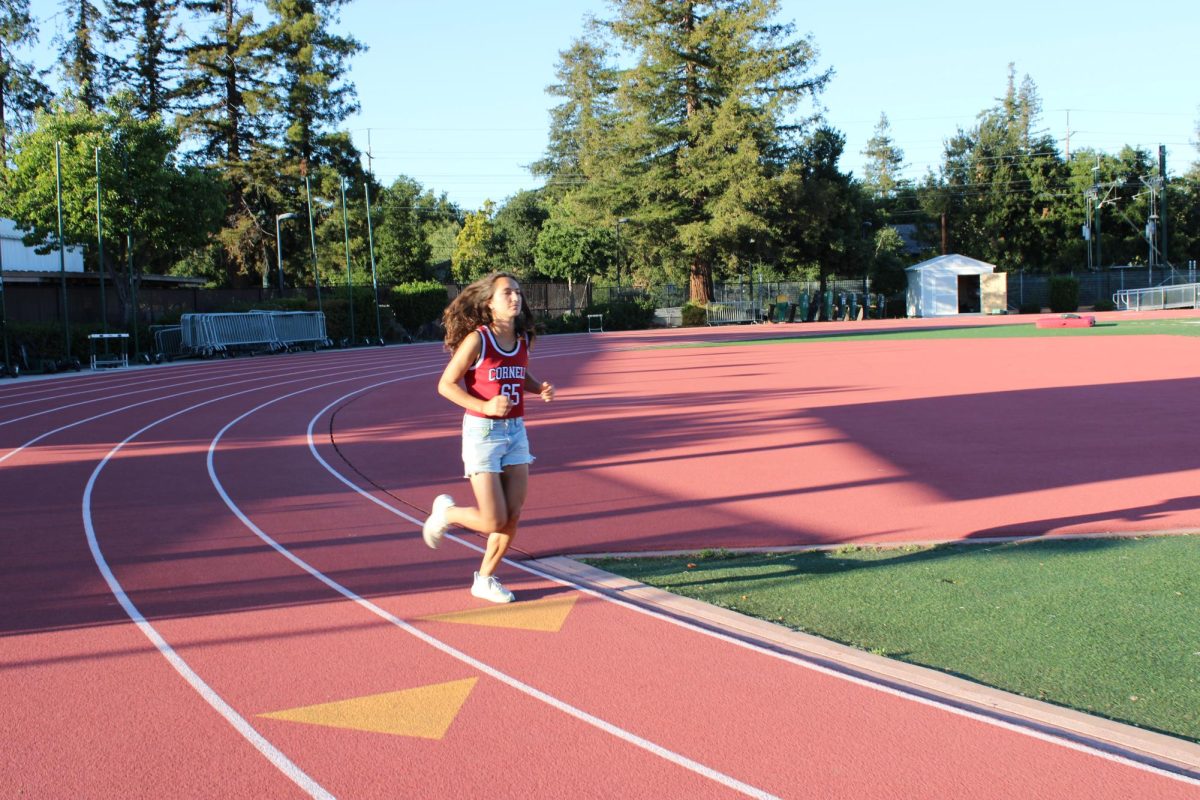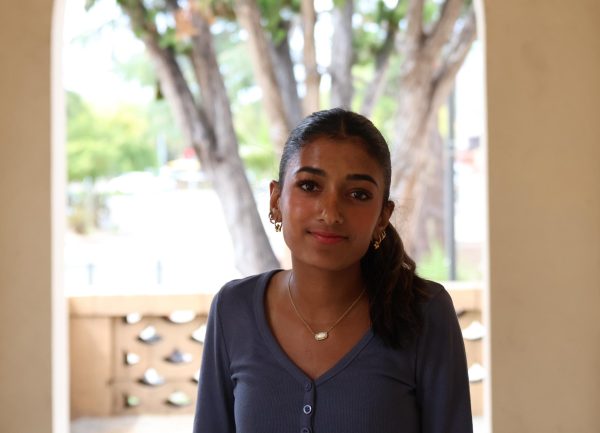Senior Romy Kiessling powers through another track workout, sweat dripping down her forehead from the heat and the mile-long warmup she just completed. As her heartbeat increases and fatigue kicks in, she reminds herself these moments are limited — soon, her time with the track team will end soon as she prepares to take a gap year to travel after high school.
As seniors approach the end of their time in high school, many, just like Kiessling, face the decision about whether they will continue their sport after high school or not.
Kiessling said instead of focusing on track after she graduates, she instead hopes to use her gap year as a chance to explore new opportunities.
“In sports, (my goal is to) probably just stay in shape, and then personally, just to do something new — get away from Palo Alto and home, see new things and just have new experiences,” Kiessling said.
Although she plans to keep at it, Kiessling said competitive athletics won’t be a priority.
“I definitely want to keep running just for fun on my own and just go on some easy runs, maybe with my friends during the summer,” Kiessling said. “But I definitely won’t do as much as I’m doing right now. I just (want) to stay in shape.”
In contrast, senior Kinga Czajkowska is preparing to run track and cross country at the Division I level at Cornell University. Czajkowska said she couldn’t imagine leaving her sport behind.
“I really love the spirit of being on a team and the experiences of going to meets, competing and improving, and I want to continue that, especially because I feel like I have a lot more in the tank,” Czajkowska said.
Senior Kanghee Cho, who has committed to playing Division I baseball at Brown University, also said the team environment is a major factor in his desire to take his sport to the next level.
“It’s fun to be good at something, and doing it at a level where everyone else is very good too is very enticing,” Cho said.
Similarly, senior Ryan Kim, who will attend the University of California, Berkeley in the fall, said he wants to keep running after high school, even if it is not at the Division I level.
“I really love the sport,” Kim said. “Even if I don’t run (Division I), I can always run on a club team or join intramural sports. Even if I don’t run on the team, I can still run competitively, which is really fun, and I really enjoy the team aspect of running.”
Kim said he is also willing to face difficulties in adapting to the new college environment.
“One of the biggest challenges I’m going to face is not really having anywhere to run,” Kim said. “(Our cross country team) runs like six to eight miles a day, and at Berkeley, unless you drive for 20 minutes, you can’t run for over half a mile without running into a stop sign, which really sucks.”
Czajkowska also said the transition to a more demanding training schedule might be difficult.
“There’s going to be more work, but there’s going to be a lot more experiences and potential for improvement,” Czajkowska said. “(We will) have more competitive meets, and it will be a lot more intense than high school’s been.”
Cho said he looks forward to having teammates to train with in his college athletic journey.
“I’ll have more unstructured time to practice on my own or study and go out,” Cho said. “(I’ll have) my teammates, and if I want to go hit with them, I don’t need to schedule anything.”
Reflecting on her own journey, Czajkowska said she encourages younger athletes to aim high in the recruiting process.
“A lot of people are too scared to reach out to schools that they don’t think they (can get recruited to) — especially people who might be winning a ton of meets,” Czajkowska said. “It doesn’t hurt to send an email, fill out a lot of forms, be brave, go to as many meets as you can and take every opportunity as it comes.”
Cho agrees and said he encourages young athletes not to put barriers on themselves.
“Don’t limit yourself to Division 1 athletics, and school doesn’t matter if you’re good enough at your sport,” Cho said.
Kim thinks staying motivated through tough times is important for students that want to continue their sport after high school.
“A piece of advice I’d give is (to try to remember) all the fond memories you have of your sport in high school,” Kim said. “It’s really nice having people support you on the side, and thinking about how friends and family will continue to support you — even if you don’t (play) D1.”




